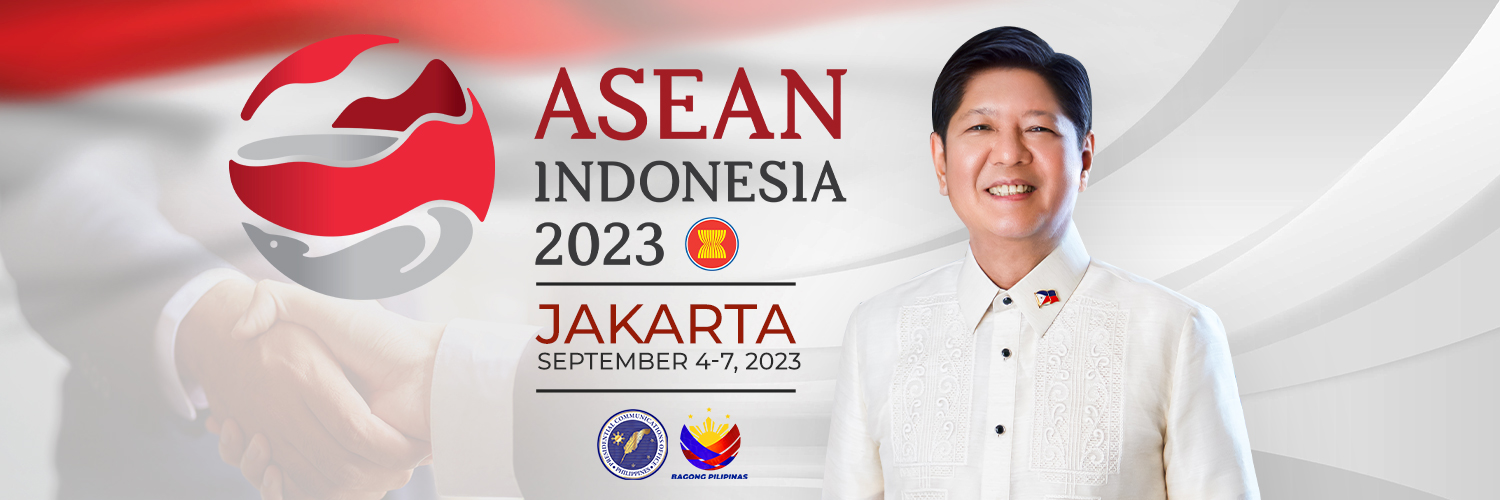
President Ferdinand R. Marcos Jr. on Thursday reported a fruitful outcome of his participation to the 43rd ASEAN Summit and Related Summits in Jakarta, Indonesia, where he advanced the country’s interest in the regional gathering.
In a press statement, the President said he participated in 12 Leaders’-Level Meetings, including with Australia, Canada, China, India, Japan, the Republic of Korea, the United States, and the United Nations.
“In these meetings, I promoted and highlighted key interests in ASEAN, such as food and energy security, migrant workers protection, climate change, and digital transformation, issues that are of strategic importance to the Philippines,” said the President before departing to the Philippines Thursday evening.
“Fellow ASEAN Member States and some external partners highlighted the importance of a rules-based international order. They also maintain that ASEAN is a competitive and integrated regional economy, underpinned by the principle of Centrality.”
The President also joined the ASEAN Plus Three Summit with ASEAN Member States, China, Japan, and the Republic of Korea, discussing areas of cooperation such as food security, climate change, and digital economy, among others.
In the East Asia Summit that Marcos attended, broad strategic, political, and economic issues of common interest and concern were tackled.
“We discussed regional and international issues, during which I emphasized the importance of a rules-based international order, especially in the disputes in the South China Sea, inasmuch as they affect not only our nation but also the entire region,” he reported.
“I reaffirmed that the Philippines is committed to the peaceful resolution of disputes and called on all countries to continue upholding freedom of navigation and overflight in the South China Sea in accordance with international law, including the 1982 UNCLOS.”
The President urged all parties during the meeting to exercise self-restraint and refrain from unilateral and assertive activities that could increase tensions, and lead to misunderstandings and miscalculations in the South China Sea.
Other significant regional and global issues including the situation
in Myanmar, the denuclearization of the Korean Peninsula, and the conflict in Ukraine were also discussed.
On the sidelines of the summit, the President held informal talks with Japanese Prime Minister Fumio Kishida and US Vice President Kamala Harris on strengthening cooperation in key areas of mutual interest.
President Marcos also had bilateral meetings with the Leaders of Cambodia, Canada, Cook Islands, India, Republic of Korea, and Viet Nam, as well as with the President of the World Bank Group (WB) where they had robust and candid productive discussions.
On the economic side, the President reported witnessing the signing of the Philippines-Republic of Korea Free Trade Agreement (FTA), which demonstrates the shared commitment of both countries to their mutual economic growth and development.
“The FTA will strengthen our bilateral trade and investment relations with the
Republic of Korea, especially as it generates jobs and contributes to the Philippines’ value proposition as an ideal regional hub for smart and sustainable investments,” he said.
“The signing of the FTA is a testament to the realization of the many opportunities for complementation and collaboration between the Philippines and South Korea, and an even greater milestone for our economic partnership.”
Also on the sidelines of the Summit, Marcos met with top executives of select Indonesian companies wanting to expand their presence in the Philippines, noting he is coming home with US$22 million in investment commitments in areas crucial for economic recovery efforts such as agriculture and digital economy.
The President also said he was pleased to announce the Philippines’ hosting of ASEAN in 2026, instead of 2027. *PND*

